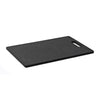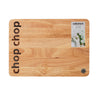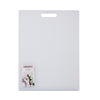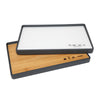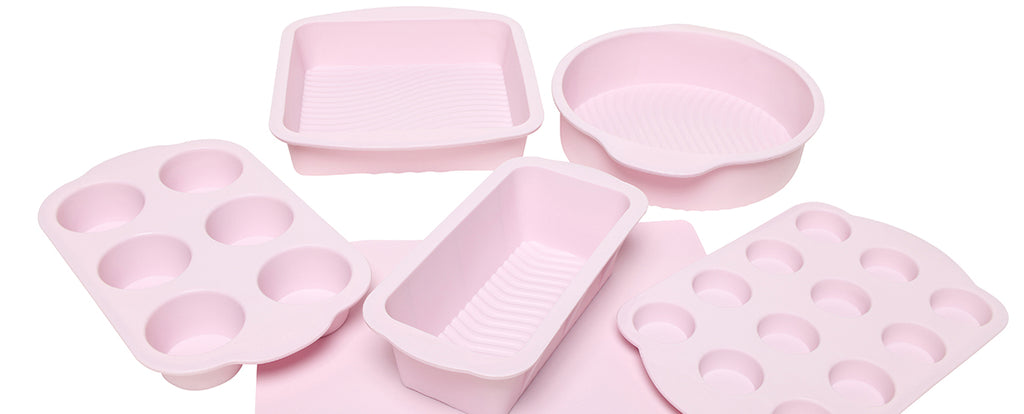- No products in the cart.
Silicone Bakeware
24
Feb
Silicone bakeware is still a little mysterious to many home cooks. Many of us regularly use silicone spatulas and other kitchen utensils but when it comes to bakeware made from silicone we are a little less familiar with them.
Silicone bakeware is a lightweight material with rubber-like qualities made from a pure form of very fine sand. Not only is it heat-resistant but you can also use it in the fridge, freezer and microwave, which means that it has great versitility - think moulding frozen desserts among other uses.
My experience with silicone bakeware has shown me that it is particularly suitable for baking small/individual cakes and those that are quite delicate in nature (such as flourless cakes) as the flexibility of the pans allows you to easily 'push' the cake out or peel the silicone away once they are baked. Remember though that you won't get the same golden crust you will with traditional metal bakeware.
Many brands claim that silicone is non-stick but I have found you will get better results if you grease them with a little melted butter (not oil spray that will leave a sticky residue on your bakeware before filling).
When filled with mixture their flexibility can actually make them a little tricky to get in and out of the oven so always pop them on an over tray for support before baking.
Silicone bakeware is considered to bake slightly more quickly than its metal counterpart. However, I have found this to be so minimal it is barely worth taking into account, if at all. I would suggest that you note on particular recipes the time it takes to bake in your silicone bakeware so you can refer to it next time around, making adjustments if required.
Silicone can either be thrown into the dishwasher or washed by hand in hot soapy water - just don't use abraisive cleaners or scorers. Also keep them away from open flames, and don't place directly on heated hotplates or under grills.
When buying silicone bakeware make sure the label states that it has been made from 'food grade' silicone and buy the best quality you can afford - obviously the better the quality, the longer it will last.
Blog contributed by Anneka Manning of BakeClub
